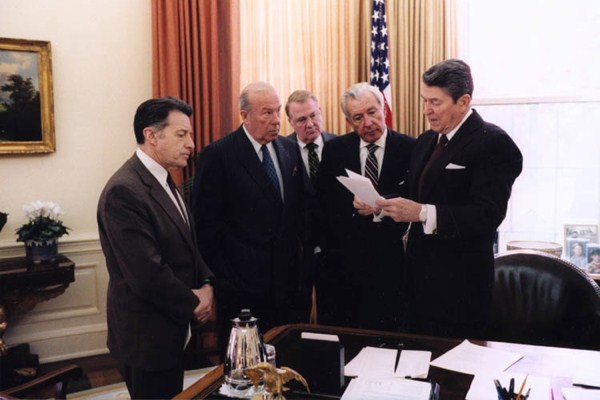In the early 1980s, U.S. military strategy had lost its bearings. Rocked by a decade of bloody, expensive and divisive counterinsurgency in Vietnam, Americans could not agree on how to use their military in a way that would both promote the national interest and reflect national values.
Under the Reagan administration, the U.S. began to shake off this malaise. In a 1984 speech at the National Press Club in Washington, Caspar Weinberger, Reagan’s secretary of defense, suggested a set of tests or principles to guide the use of the American military: vital national interests must be at stake; the U.S. must be committed to winning; there should be clear political and military objectives; the application of force should be continually reassessed and adjusted if necessary; Congress and the American public should support the endeavor; and the use of force must be a last resort. Later Gen. Colin Powell, first as national security adviser and then chairman of the Joint Chiefs of Staff, adopted Weinberger’s principles and pushed them so vigorously that they are often known as the “Powell doctrine.”
The thinking captured in the Weinberger principles helped refocus American strategy in the dark years after Vietnam and revive the public’s confidence in its armed forces. But somewhere along the way, the principles fell by the wayside. In Somalia, the Balkans and later Afghanistan and Iraq, the U.S. used force without clear military objectives, without a commitment to winning and with fragile congressional and public support. The result has been renewed malaise: America has once again lost its bearings. It might, then, be time to dust off the Weinberger principles.

